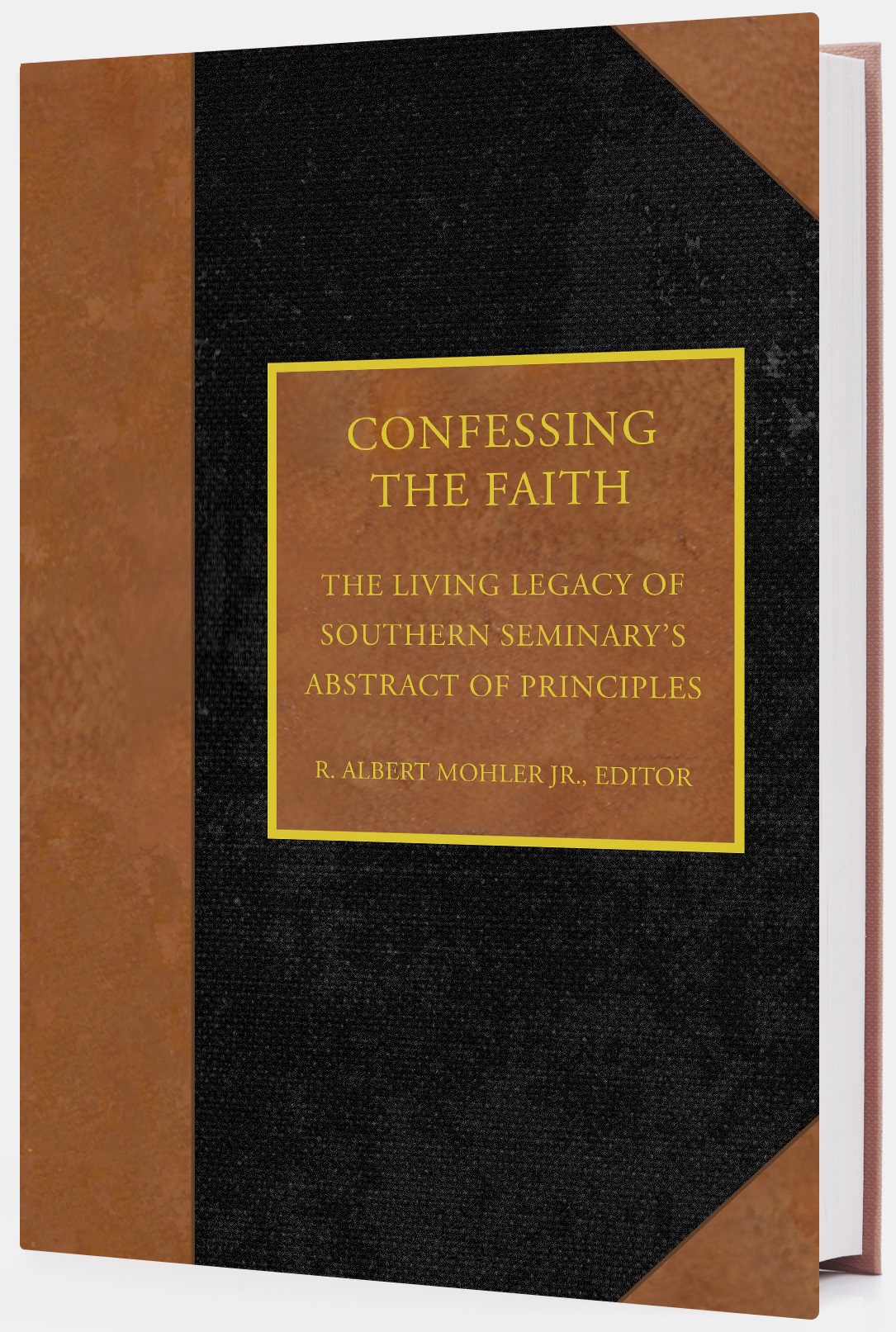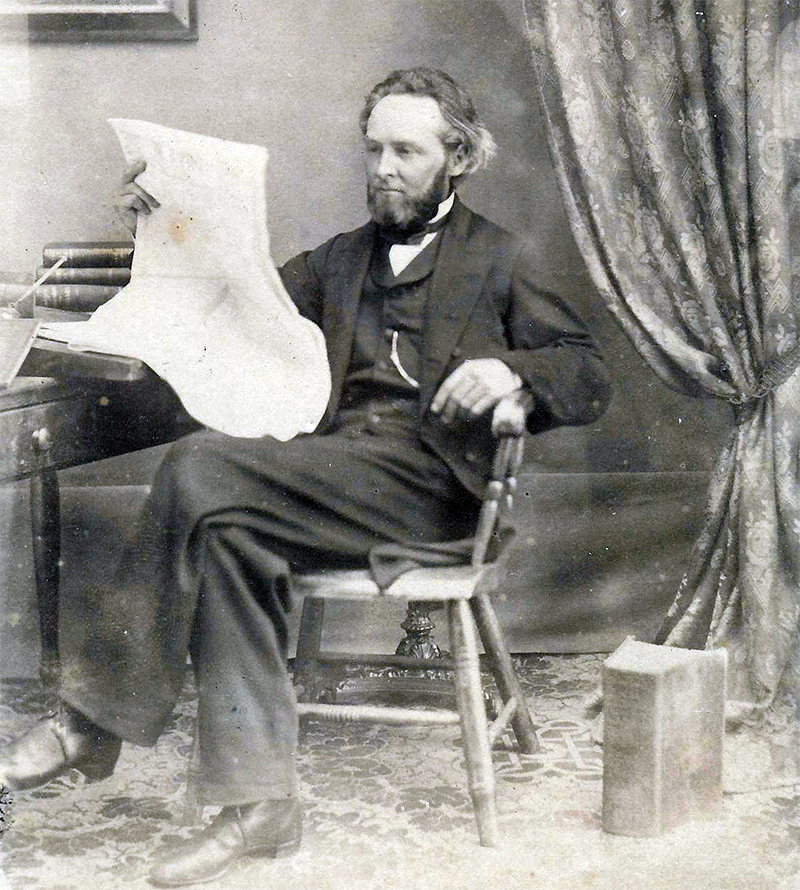A Calvinist-influenced doctrinal statement written by slaveholders before the Civil War still serves Southern Baptists well in the 21st century, a seminary president said recently promoting a new book affirming his institution’s commitment to “confessional” faith.
Albert Mohler, president of Southern Baptist Theological Seminary, wrote the introduction to Confessing the Faith: The Living Legacy of Southern Seminary’s Abstract of Principles, a collection of 20 chapters written by faculty members articulating and defending doctrinal truths included in the seminary’s original charter adopted in 1858.
“The world around us has changed in almost every conceivable way, but what hasn’t changed is the fact that the truths articulated in the Abstract of Principles continue to be the truths upon which this institution is premised,” Mohler said in a Q&A interview with the campus newspaper.
“And the nature of Southern Seminary as a confessional institution, then lost for decades, in this generation has been recovered,” Mohler told Towers editor S. Craig Sanders in a story in the November 2016 issue. “While the world around us has moved in different directions, it’s incredibly important that Southern Seminary publicly, authentically and gladly holds to the convictions upon which the institution was established over 150 years ago.”
Each professor joining the faculty at Southern Seminary signs the Abstract of Principles, signifying agreement “to teach in accordance with, and not contrary to” doctrines enumerated in the historic statement of Baptist beliefs drafted by Basil Manly Jr., one of the seminary’s four original faculty members, at the request of founding president James Pettigru Boyce.
Manly, who taught Old Testament at Southern Seminary 1859-1871 and 1879-1892, grew up in a planter’s family in South Carolina, with his father owning 40 slaves. His father, Basil Manly Sr., was one of the most influential preachers in the South and an ardent supporter of slavery who used the Bible and Christian teachings to justify the institution.
The elder Manly was author of the “Alabama Resolutions,” adopted in 1844 by the Alabama Baptist State Convention to affirm rights of slaveholders to serve as missionaries in the General Missionary Convention of the Baptist Denomination in the United States of America for Foreign Missions, known shorthand as the Triennial Convention.
After a test case from Georgia recommending a slaveholder for appointment as a home missionary, Southern Baptists gathered in 1845 in Augusta, Ga., to form the Southern Baptist Convention, faulting their Northern brethren for acting “upon a sentiment they have failed to prove — that slavery is, in all circumstances, sinful.”
Mohler termed the white supremacy presumed by the seminary’s founders “a heresy” during a debate over the Confederate flag following the deadly shootings at Emanuel AME Church in Charleston, S.C., in June 2015, but said he would not sandblast slaveholder names off of seminary buildings because of “their courageous affirmation of biblical orthodoxy, Baptist beliefs and missionary zeal.”
Basil Manly Jr. and Boyce both studied theology at Princeton Theological Seminary under professors including Charles Hodge, a Presbyterian theologian and leading exponent of the Princeton theology, an orthodox Calvinist theological tradition that held sway from the founding of that institution in 1812 until the Fundamentalist-Modernist controversy during the 1920s.
The last of the Princeton theologians left in 1929, when New Testament scholar J. Gresham Machen departed to form Westminster Theological Seminary in Glenside, Pa., a new conservative stronghold for Reformed theology that influenced Christian leaders today including Calvinist author and preacher John Piper and Timothy Keller, founding pastor of Redeemer Presbyterian Church in New York City.
Mohler said when he attended Southern Seminary as a student in the 1980s, moderate professors had a right to “private interpretation” of the Abstract of Principles, a concept enshrined in the 1963 version of the Baptist Faith and Message on the basis of soul competency and priesthood of the believer removed when the confession of faith underwent revision in 2000.
 Frank Stagg, a professor of New Testament interpretation and expert on the Book of Acts who taught at Southern Seminary from 1964 to 1978, wrote in the Mississippi Baptist Record in 1995 that the type of Calvinism advocated in the Abstract “makes missions and evangelism a mere formality, with ‘salvation’ and ‘reprobation’ settled before the creation.”
Frank Stagg, a professor of New Testament interpretation and expert on the Book of Acts who taught at Southern Seminary from 1964 to 1978, wrote in the Mississippi Baptist Record in 1995 that the type of Calvinism advocated in the Abstract “makes missions and evangelism a mere formality, with ‘salvation’ and ‘reprobation’ settled before the creation.”
Mohler, entering his 24th year as seminary president, said such latitude is no longer tolerated at the seminary in Louisville, Ky.
“I want students to know that when faculty members sign the Abstract of Principles it’s not merely that they sign it as a symbolic act, it’s not that they merely sign it saying they understand this is what the institution represents,” he told The Towers. “It’s not just that they agree to teach within these theological boundaries. It’s that they confess this is the faith they also believe and want to teach.”
Mohler said Southern Seminary students today don’t experience things he witnessed as a student, such as Professor Dale Moody handing out his revisions of the Abstract of Principles in class. “I hope that’s shocking to our students today, and it ought to be,” Mohler said of the anecdote included in his chapter in Confessing the Faith. “And that’s a part of why such a reformation of the institution was necessary.”
Moody, a professor of theology at Southern Seminary from 1948 until 1984, ran into controversy toward the end of his career when he said 48 passages in the New Testament warn believers against “falling away” from the gospel and that people who think “they can believe and be baptized and live like the devil” are “going to get a surprise at the Judgment.”
Moody, who died in 1992, said he had difficulty throughout his tenure with Article 13 of the Abstract of Principles concerning “Perseverance of the Saints,” which says true believers “will never totally nor finally fall away from the state of grace, but shall certainly persevere to the end.”
“I am in agreement with the Abstract as long as it is in agreement with the Scriptures,” Moody said in 1982, “but it is not in agreement with the Scriptures” when it comes to the document’s position on apostasy.

